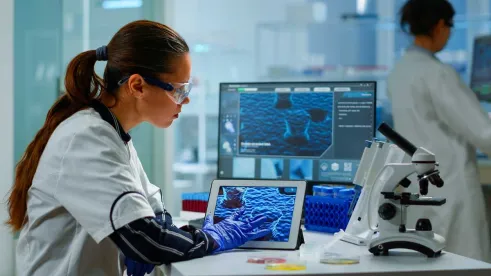The USPTO recently released a Report to Congress (“Report”) detailing the results of its call for public comments regarding the impact of U.S. jurisprudence on patent subject matter eligibility. The Report is responsive to requests from Senators Thom Tillis (R-NC), Chris Coons (D-DE), Mazie Hirono (D-HI), and Tom Cotton (R-AR) to collect information from the public1 on the current state of patent eligibility jurisprudence in the United States and provide a report based on the evaluated responses from participants.
In a March of 2021 letter to the USPTO, the Senators “expressed concern about the ‘lack of consistency and clarity’ in patent subject matter eligibility jurisprudence in the United Stated and the effect of that uncertainty on American leadership in innovation.” Report at page 2. The Senators’ request was based in part on their belief that legislative action was required to address this effect, and the Report would assist them in determining if action is necessary. Of particular interest was how the current jurisprudence adversely impacted several key technologies, including precision medicine, diagnostics and pharmaceutical treatments. Id.
Diagnostic Innovations, Precision Medicine, and Gene-Based Technologies
The Report acknowledged that recent jurisprudence on patent eligibility, in particular, expanding exclusions to patent eligible inventions, have greatly impacted patenting activity in the life sciences. Report at page 31. The public comments were largely split between patent owners and companies reporting a negative impact on investment and innovation, and researchers and patient advocacy groups reporting enhanced access to information and treatments. Id.
Many commenters from the biopharmaceutical industry and trade organizations noted that recent jurisprudence “has all but eliminated certain categories of patent protection … including [in] medical diagnostics and precision medicine, causing innovators not to pursue patent protection.” Report at pages 31-32. Also noted as of concern was that the U.S.’s current approach will adversely impact economic competitiveness, since China, Korea, Japan and Europe, allow patenting of medical diagnostic in one form or another. Report at page 32.
On the other hand, patient advocacy groups asserted that the current jurisprudence has improved access to diagnostics and accelerated the discovery of new methods. One university commented that the U.S.’s current approach has “unshackled” the “’basic tools of scientific and technological work,’” and as such, “reform is premature until those positive effects are better understood.” Report at page 33.
The biopharmaceutical industry highlighted the disproportionate adverse impact the current state of the law has on precision medicine and gene-based technologies. One global pharmaceutical company asserted that ‘”in fields like precision medicine … the difference between eligible and ineligible subject matter now apparently sometimes (though not always) comes down not to actual substance of he claimed invention, but to whether a court will ultimately construe it as a ‘diagnostic’ or a ‘method of preparation.’” Report at page 34. Such uncertainty also was deemed likely to decrease research that will lead to earlier detection, personalized treatment, and better health outcomes. Indeed, some businesses have indicated that they are no longer patenting these technologies and instead, relying on trade secrets to protect innovation. The net result is the decreased disclosure of new technologies. Report at pages 28-29.
Medical advocacy groups did not agree with this assessment. In their view, the patenting of genes and other natural phenomena can hinder research, make the healthcare industry less productive and less competitive domestically and globally. Id. Two commentators pointed to the post-Myriad increase in competition in genetic testing for BRCA1 and BRCA2 genes as evidence of increased access to diagnostics and a reduction in patient cost.
Continued Outreach
Outreach by the USPTO is ongoing, and interested stakeholders are invited to submit additional feedback and suggestions to 101@uspto.gov. The USPTO is also hosting several listening sessions with Director Kathi Vidal to discuss key issues impacting stakeholders and their businesses. More information can be found here.
ENDNOTES
1 The USPTO received 141 different responses from a variety of stakeholders including legal associations, industry organizations, advocacy groups, nonprofit entities, businesses, law firms, patent practitioners, academics, and inventors. The comments are available here.




 />i
/>i


